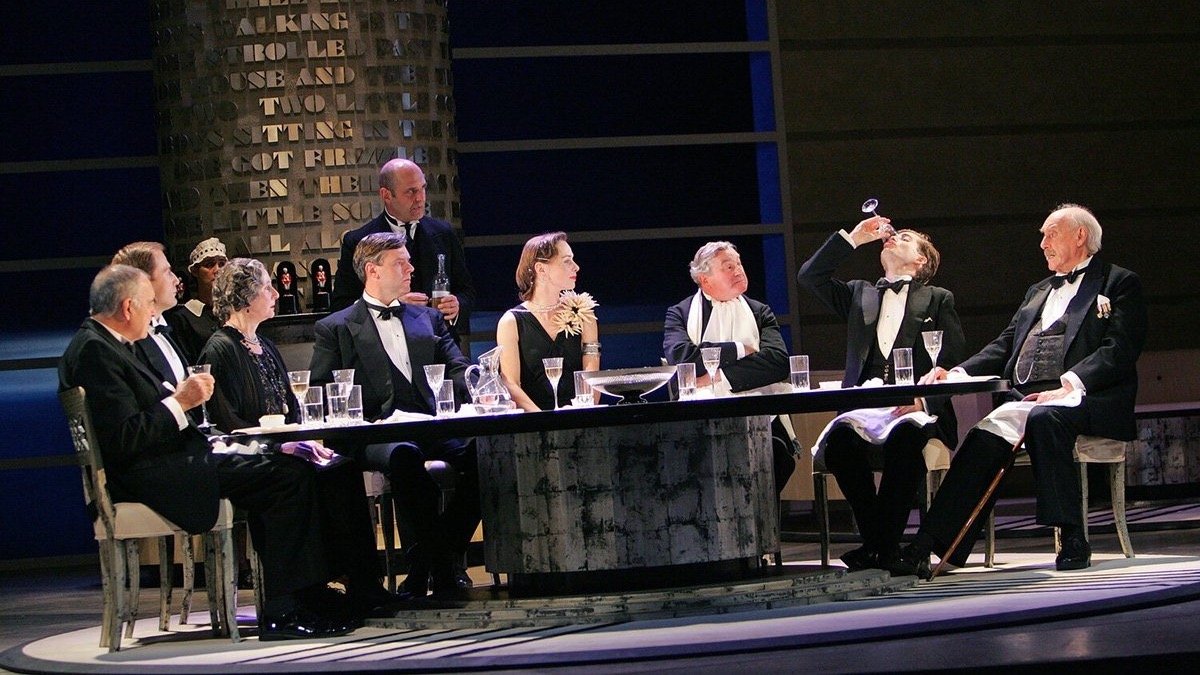
The play is set off the coast of Devon, England, on Soldier Island, where guests have been invited for reasons that, at first, seem fruitful. As the plot begins to take shape, a mystery unravels which parallels the verses within the rhyme. We soon realize that unbeknownst to the guests, their invitation to Soldier Island is, in fact, a reason to pay for misdeeds that they have committed. Once everyone arrives, a booming voice charges each of the guests with a crime. Above them on a mantelpiece sits a figurine representing each guest and, as death strikes, the one standing in for that character disappears. Later in the play, each guest realizes that none of them knows their supposed host, Mr. Owen, and that they have all been tricked into coming to Soldier Island. Tensions and fear increase as they are killed off one by one. Running through the play’s plot is a thread of justice that leaves the audience questioning how it will all end.
Here’s a look at each of the characters in the play. All are potential victims. Nearly all of them are suspects. But which of them is the murderer… the one person responsible for the deaths of the others?
THE BUTLER
Thomas Rogers (m, 30+)
Thomas Rogers is the first character to appear in the play. Rogers and his wife have been hired as caretakers of the eight guests who will be arriving. Thomas, a butler, has been put in charge of the household, attending to everyone’s needs. He is overwhelmed by his duties, displaying exasperation and ill will. Unfortunately, his wife is the main recipient of his frustrations.
THE COOK/HOUSEKEEPER
Ethel Rogers (f, 30+)
While she is technically employed as a cook, like her husband, Ethel is expected to go beyond the scope of her position. Ethel is frail, nervous and overwhelmed. Trapped beneath the thumb of her demanding husband, she is unhappy and lost.
THE GENERAL
John Gordon MacKenzie (m, 70)
General MacKenzie sticks out among the others and doesn’t seem to be comfortable socializing. One might suspect that he suffers from a guilty conscience. Defensive about the accusations directed at him, MacKenzie prefers to talks about the love and devotion he felt for for his dear wife Lesley.
THE JUDGE
Sir Lawrence Wargrave (m, 70+)
A retired criminal judge, Wargrave is a sober and rigid man of the law. Thanks to his many years at the bench, he is able to maintain a cool head even when circumstances become increasingly dire.
THE PHYSICIAN
Dr. Edward Armstrong (m, 70+)
Dr. Armstrong is a highly successful nerve specialist. He was invited under the pretense of treating Mrs. Owen. His demeanor is that of a weak and somewhat sorrowful person who can easily be taken advantage of.
THE PLAYBOY
Anthony James Marston (m, 23)
Handsome, youthful, from a wealthy family and oozing with superiority and little moral judgment, Anthony seems the least ashamed of his checkered past.
THE POLICE OFFICER
William Henry Blore (m, 50)
A former police officer from South Africa, Blore presents himself as wise and available to give advice to others. He is the first to act in a variety of situations, but his actions don’t always yield positive results.
THE SECRETARY
Vera Claythorne (f, 25)
A former governess, Vera was hired to serve as secretary to Mrs. Owen, wife of the mysterious host. Intelligent and poised, Vera is at first excited by the prospect of this adventure, but her enthusiasm eventually evolves into an urgent desire to leave the island.
THE SPINSTER
Emily Brent (f, 65)
Possibly the least likable character in the household, Emily comes off as righteous, judgmental and negative. Her rules for proper living allow for no exceptions.
THE SOLDIER
Captain Philip Lombard (m, 34)
Captain Lombard is confident and self-assured and more than proud of his military service in Africa. He is flirtatious with Vera but treats her with a somewhat superior attitude. He misjudges her and is surprised by her capability.
For more great plays by the Queen of Mystery, visit Concord Theatricals’ Agatha Christie Collection in the US or UK.

Newly Available for Licensing – October 2025 (US)

Newly Available for Licensing – October 2025 (UK)

